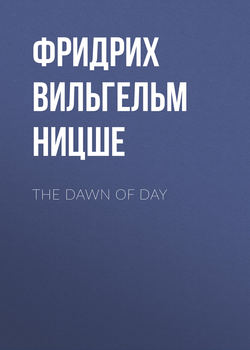Читать книгу The Dawn of Day - Фридрих Вильгельм Ницше - Страница 80
Book I
78
ОглавлениеAvenging Justice. – Misfortune and guilt: these two things have been put on one scale by Christianity; so that, when the misfortune which follows a fault is a serious one, this fault is always judged accordingly to be a very heinous one. But this was not the valuation of antiquity, and that is why Greek tragedy – in which misfortune and punishment are discussed at length, and yet in another sense – forms part of the great liberators of the mind to an extent which even the ancients themselves could not realise. They remained ingenuous enough not to set up an “adequate relation” between guilt and misfortune. The guilt of their tragic heroes is, indeed, the little pebble that makes them stumble, and on which account they sometimes happen to break an arm or knock out an eye. Upon this the feeling of antiquity made the comment, “Well, he should have gone his way with more caution and less pride.” It was reserved for Christianity, however, to say: “Here we have a great misfortune, and behind this great misfortune there must lie a great fault, an equally serious fault, though we cannot clearly see it! If, wretched man, you do not feel it, it is because your heart is hardened – and worse than this will happen to you!”
Besides this, antiquity could point to examples of real misfortunes, misfortunes that were pure and innocent; it was only with the advent of Christianity that all punishment became well-merited punishment: in addition to this it renders the imagination of the sufferer still more suffering, so that the victim, in the midst of his distress, is seized with the feeling that he has been morally reproved and cast away. Poor humanity! The Greeks had a special word to stand for the feeling of indignation which was experienced at the misfortune of another: among Christian peoples this feeling was prohibited and was not permitted to develop; hence the reason why they have no name for this more virile brother of pity.
